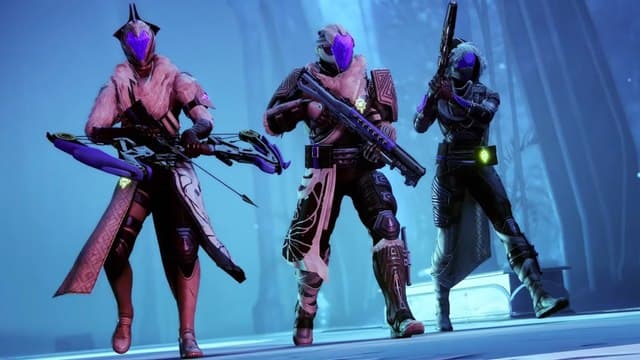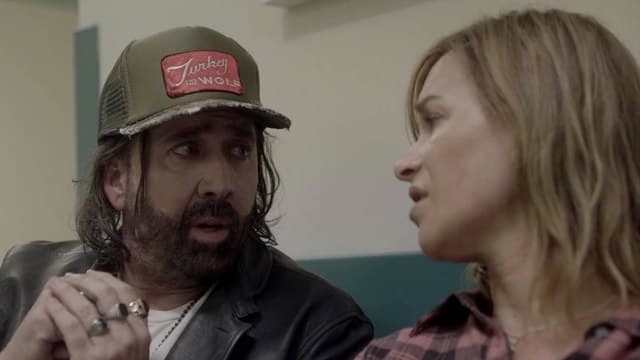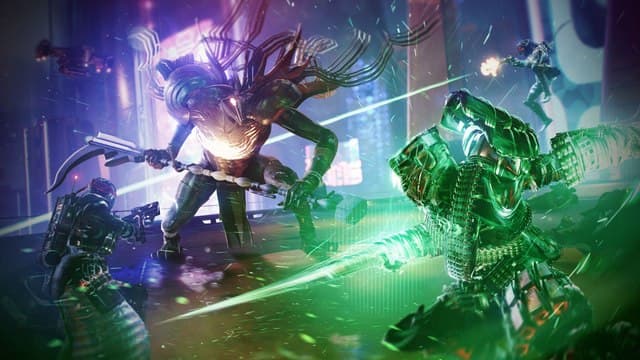Update: Following the original report, Scavengers Studio has released a statement by CEO Amélie Lamarche confirming that Darveau has been indefinitely suspended from his responsibilities both within the company and on the Board of Directors. Lamarche will be stepping down from her position during an external audit to assess the studio’s workplace culture.
The statement reads as follows:
Following the toxic workplace allegations brought forward in the media, Scavengers Studio wishes to apologize for the harm caused. Allegations such as these are serious, and we are committed to doing better for our employees, our fans and our partners.
Our company held an emergency Board of Directors meeting to discuss the best course of action moving forward. Effective immediately:
- Simon Darveau is indefinitely suspended from all responsibilities within the company and from the Board of Directors.
- An external auditing firm will conduct an independent workplace assessment and audit of our culture and practices.
- Daisy Lilly Best, currently Director of Operations, is appointed as Chief Operating Officer and will be reporting directly to the board of directors for the duration of the audit to ensure complete transparency and accountability.
- The audit report will be shared in its entirety with the team and presented by Daisy to the board for further actions to be taken.
To ensure a transparent, fair and unbiased process, I offered to temporarily step down from my role as Chief Executive for the duration of the audit. I will remain available to support the studio’s normal course of business.
Original story follows: In a report by GameIndustry.biz, current and former developers at Scavengers Studio, most recently known for Season, an adventure game announced at the 2020 Game Awards, described a workplace environment notably at odds with the game it unveiled at the award show in December. The outlet spoke to nine former and current employees, which described the studio’s workplace culture as toxic, perpetuated by creative director Simon Darveau and CEO Amélie Lamarche, who were romantically involved at the time of the studio’s founding in 2015.
The sources GameIndustry.biz spoke to described the studio as having a “boys’ club” culture, which meant female employees were frequently victim of sexist treament, sexual harassment, and being spoken down to about their own work. Whether that be in casual conversations, meetings with the development team, or in the studio’s Slack channels. Much of this was led by Darveau, but it extended to other male members of the team.
While Darveau both allowed and contributed to this environment, sources told GameIndustry.biz that the studio had no dedicated HR department, meaning that all of their complaints had to go to Lamarche, who, as previously stated, was romantically involved with Darveau in the studio’s early years. That relationship led sources to believe this impacted her ability to be impartial, while also making employees hesitant to report problems in the first place.
You can check out GameIndustry.biz’s report for the full rundown of incidents the nine sources were able to recount, but be aware some of them include a workplace affair, and Darveau drunkenly groping female employees at a Scavengers Studio party. Those occurrences did result in a meeting about harassment policies, but the events that led to that meeting were never addressed in a forward facing way.
Beyond the treatment of women, the sources described Darveau as hostile towards workers in regard to their value to the Scavengers Studio as a workplace, with several saying he saw them as “disposable” and would make comments about firing people in front of other employees. Often workers would have promotions dangled in front of them, only to be told they hadn’t met some previously unmentioned standard when asked about promised forward momentum. This wouldn’t extend to Darveau’s preferred employees, which he called “commandos,” who were frequently allowed to be toxic toward other members of the staff, QA and community management, especially.
Darveau had also fostered the toxic work environment by screaming at employees, which sources told GameIndustry.biz had extended beyond the co-founder and become a common theme within the company. Even now, during the coronavirus pandemic as employees are working from home.
“Screaming matches are common,” one person told GamesIndustry.biz. “They occur in meetings, and yelling at people to the point you can hear it from outside the meeting room pre-COVID. Post-COVID is even more terrible because everyone is on the call, so now it’s exposed to not just people who walk by the meeting room, it’s everyone who’s connected. And they [Darveau] are sometimes the ones interrupting or cutting people off to say whatever he wanted to say or dismiss someone’s idea. Watching co-workers yelling at each other instead of stopping it is unacceptable. The calls were chaotic and stressful, they just allowed people yelling at each other and insulting each other.”
After the studio finished its game The Darwin Project, the plan was for Darveau to work on a separate game while Kevin Sullivan acted as creative director on Season. Several members of the development team reportedly were stressed at the idea of Darveau working on Season, as he had proven in the past to take over projects and hand off work to his “favorites.” There was also a distinct difference in the game’s philosophy and the one Darveau typically ascribed to in game development. Season was meant to be narrative-driven, while Darveau preferred “more gameplay-oriented, fast-paced things.” This concern extended through the company, but Darveau ended up working with the Season team anyway, a decision reportedly made by Lamarche. However, sources told GamesIndustry.biz that his role with the game wasn’t entirely clear, as Sullivan was still the acting creative director.
While Darveau’s actual role is unclear to some, the employees GamesIndustry.biz spoke to say they see his disorganized leadership as detrimental to Season’s progress.
“Every game it’s the same pattern,” one told GameIndustry.biz. “He builds a vision of a game, sells it to the team so the team is excited, then he sells it to publishers, but there’s no design, there’s no concrete plan, and there’s never really a game in the end. People working on the game are trying to do their best, but the whole company is built around — we build prototypes, we get money from publishers, and repeat. There’s not a real goal of releasing a quality game, there’s no process to do so.”
Now that Scavengers Studio has made a deal with Sony to have the game as a PlayStation 5 console exclusive, the team has had to deal with the vision Darveau sold the publisher on. One that included a larger, more open world. According to a developer, things have shifted around so much the game is near unrecognizable from its original design plans.
“Now I don’t even know what’s been announced because it’s so different from what we had planned,” one person explained to GamesIndustry.biz. “I don’t even recognize the game.”
More on video game industry labor:
- Cyberpunk 2077 Devs Allegedly Threatened by Management Into Crunching
- Blizzard Strike Proves Crunch Isn’t the Industry’s Only Labor Issue
- Focus Home Interactive Responds (Poorly) to Aeon Must Die Working Condition Allegations
In a correspondence between GameIndustry.biz and Scavengers Studio, the company acknowledged issues within its hierarchy and lack of a proper HR department, issuing a statement that read as follows:
“Scavengers Studio appreciates that there have been situations during its rapid growth and takes the position that any type of harassment is unwelcomed and unacceptable and takes any complaints in this respect very seriously,” the company said in a statement. “You should note that Scavengers Studio has taken positive steps to look into its culture to see what aspects need to be adjusted.
“In early 2019, Simon Darveau was replaced as CEO by Lamarche who took full control of the company. As a new female CEO, Lamarche started to build a mid-management team composed of competent team members to continue to lead the company in its mission of creating new gaming experiences with very strong and innovative empathetic twists. The new management team has since then recreated a sense of calm and happiness in the workplace where talents are gathered around interesting and dynamic projects and where differences are embraced.”
Notably, the studio also claimed “certain elements in your assessments are false, somewhat blown out of proportion or lacking important pieces,” in reference to GamesIndustry.biz’s reporting. When asked for clarification on what specifically was inaccurate, the studio said it wouldn’t be commenting further due to “privacy reasons.”
Sources familiar with changes to the Scavengers Studio’s HR department were insufficient, especially as Lamarche and Darveau’s relationship still felt like a conflict of interest when it came to Lamarche looking out for employees.
“She gives this vibe of, ‘I support women in games,’ …but it’s really not the case,” a source told GameIndustry.biz. “There were a lot of circumstances at work where she should’ve said something and should’ve done something, like when Simon would make inappropriate jokes or yell at people, but she didn’t.”
Season’s reveal at the Game Awards was largely met with positive reception for its art style, inclusive cast, and a generally soothing vibe, but given the state of the studio that made it, employees, past and present, aren’t comfortable with how the game has been received.
“If half of what [I know of Season] is true then the game is going to be great, and I do not want to remove that from all my friends who are working on it. But I also do not feel comfortable with Scavengers being praised as a fun, cool, indie, inclusive place.”
Season is set to launch exclusively on PlayStation 5 and PC, but has no release date as of this writing.


